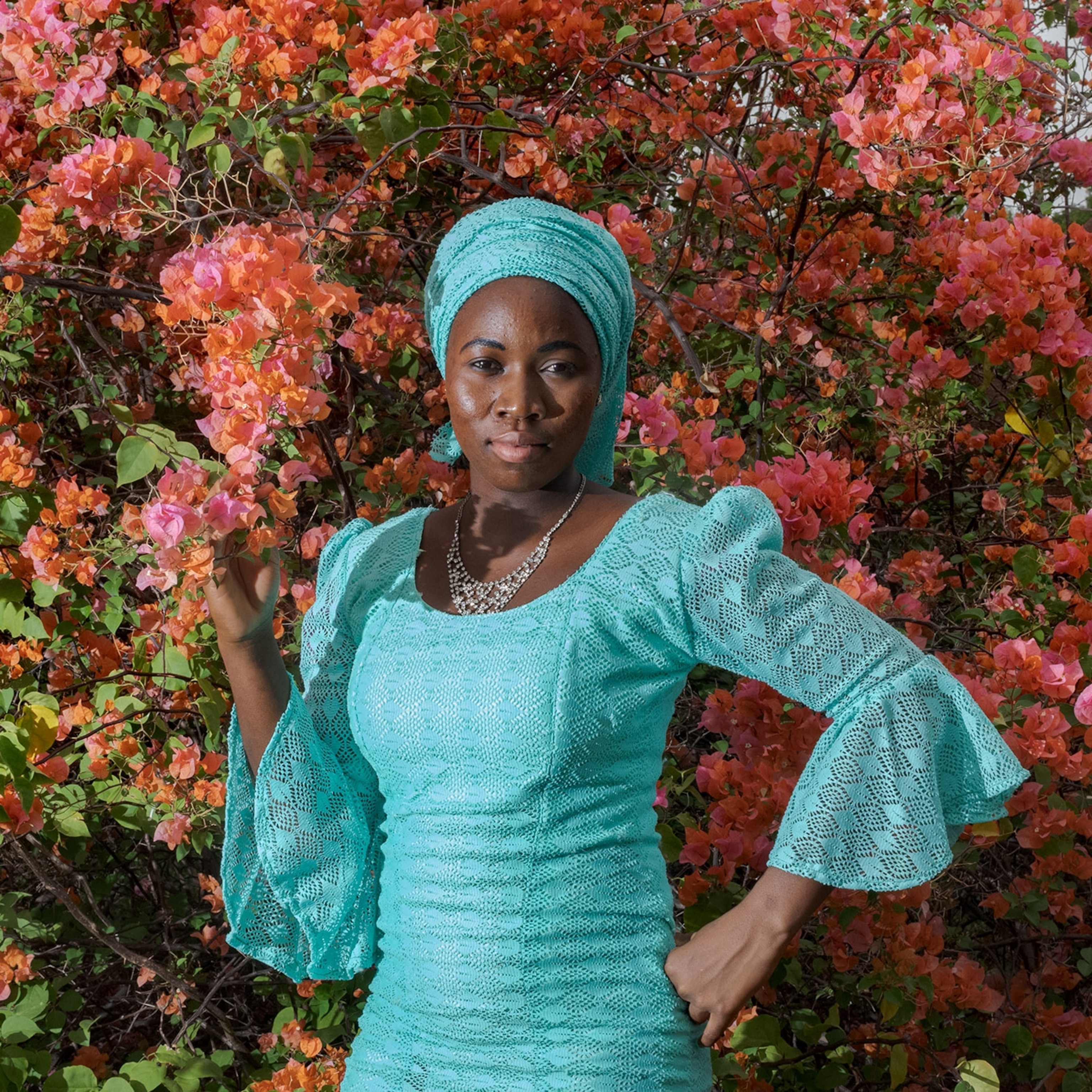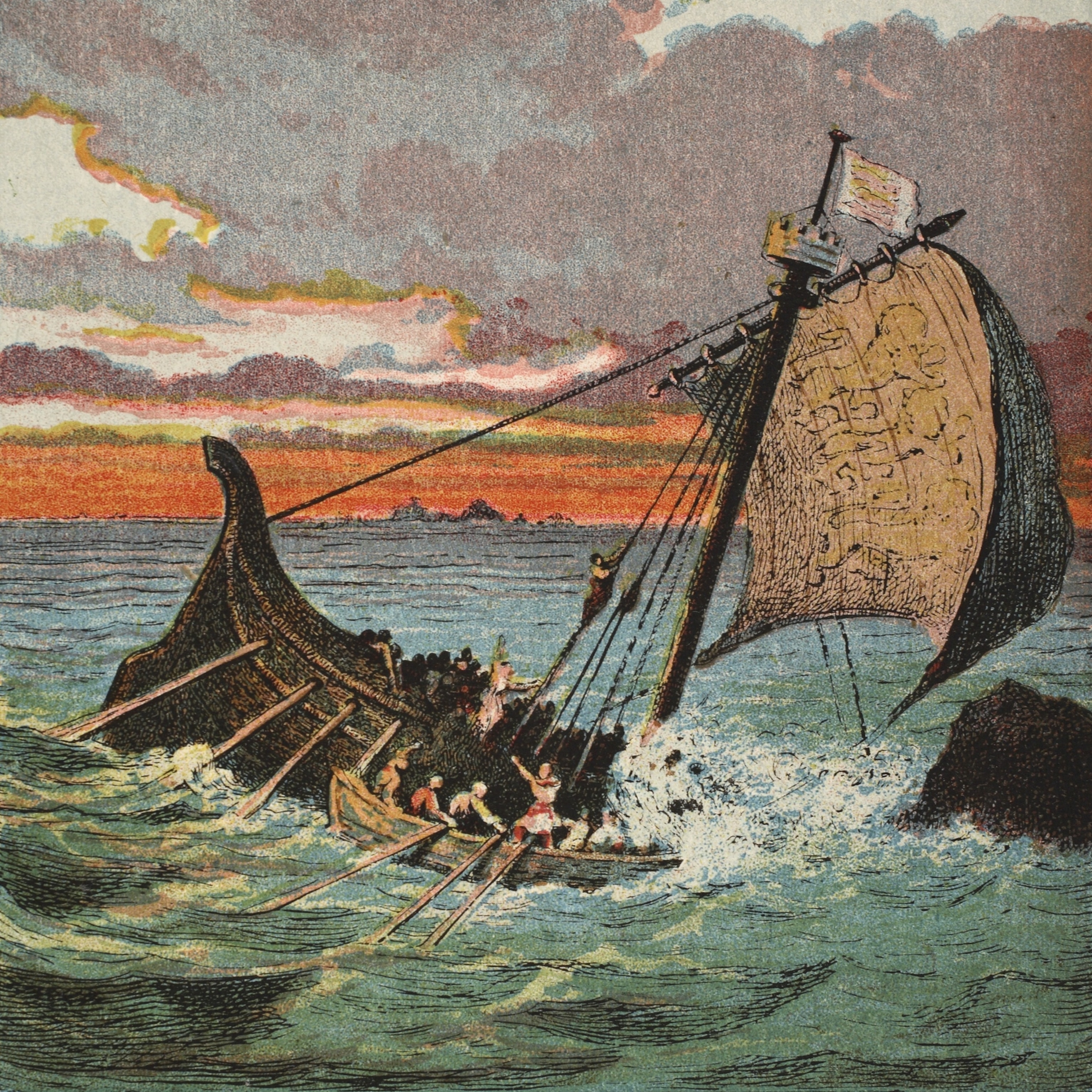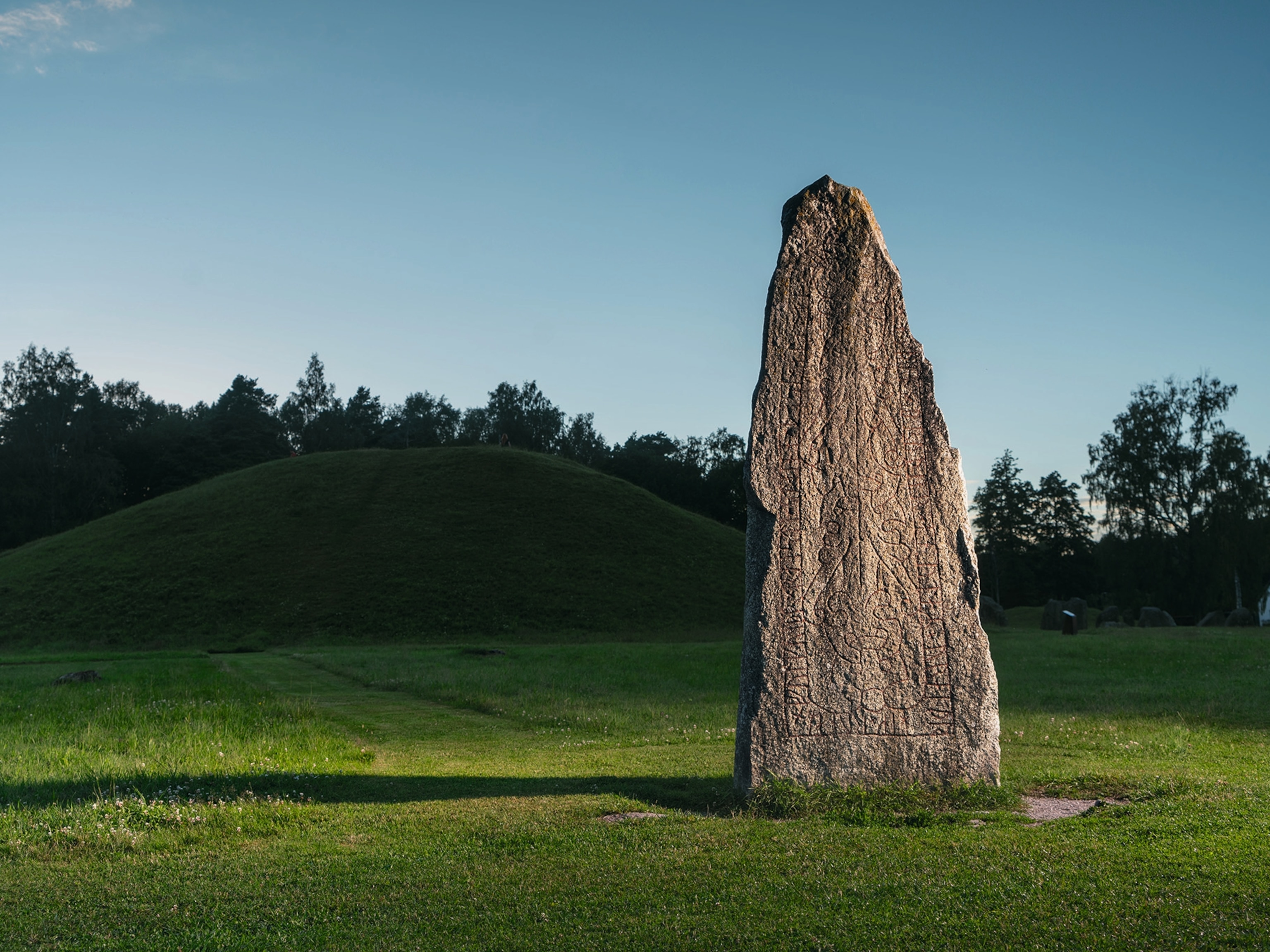
The Words "Boko Haram" Have Become Nigeria's National Synonym for Fear
One Nigerian official's wish for Boko Haram: "Find them, kill them."
Learning yesterday that American officials have been dispatched to Nigeria to aid in the search for a group of kidnapped schoolgirls, I was reminded of a revealing interview I conducted, or tried to conduct, in Abuja, the Nigerian capital, a year ago.
Photographer Ed Kashi and I were on assignment for National Geographic magazine, reporting on the militant Islamist group Boko Haram. (Our story, published last November, is presented in full below.) This week the group took credit for the kidnappings and staged an attack that left more than 300 dead near Nigeria's border with Cameroon.
We had come to Abuja from the north, where Boko Haram and its affiliates and imitators were busy bombing, burning, and shooting up police stations, bus depots, churches, mosques, homes, and schools.

I was in the office of a prominent Nigerian government official who was riveted less by the subject of Boko Haram than by what was transpiring on a television tuned to CNN. The previous weekend, a pair of bombs had exploded at the finish line of the Boston Marathon. It was now a few days later, and already the hunt for the perpetrators, two disaffected brothers from the Caucasus, was nearing its conclusion. The coverage cut between swarms of well-armed police and FBI agents making their way through Boston's streets and surveillance footage of the Tsarnaevs.
A paramilitary operation had been launched in an American city, it appeared, to catch a pair of kids. The Nigerian official watched with nothing but admiration. Though himself formerly an antigovernment radical in the Niger Delta, where he'd fought to try to stop the oil industry's ruination of his native ground, he urged mercilessness.
"I love this about America," he said with a tone of, if not love, then certainly reverence. "Find them, kill them. Don't wait for judicial manipulation."
As the parents of the kidnapped schoolgirls become more desperate, and their protests in Abuja grow larger, he may be repeating those four words to himself like a mantra.

Kill Them
That is what most Nigerians wish their government would do to Boko Haram, if only it could be found. The group, or movement, or whatever it eventually proves to be—precious little is known about Boko Haram or its motivations, so far related in a series of rambling, contradictory written statements and videos—is credited with unnumbered deaths since it began battle against the Nigerian government four years ago. People who kill this much expose themselves to killing, logic dictates. Yet the group has proved evasive, even "unkillable," as some Nigerians believe.
The death toll is usually claimed to be in the thousands, but no one has an accurate tally, in part because the Nigerian government misreports incidents and in part because in its hapless pursuit of Boko Haram, the government has killed so many people itself, many if not most of them civilians. The Nigerian armed forces claim that they kill only terrorists, yet the terrorists' ravages become more frequent and more vicious with every such claim. So vast and mysterious is the carnage, many otherwise sane Nigerians have come to believe Boko Haram possesses supernatural powers. Its name has taken on an incantatory power. It has become a kind of national synonym for fear.
Still, the group's leader, Abubakar Shekau, a young, thickset man with a limp and a fanatic's smile, directs it with a certain hideous pragmatism and demographic parity. Africa's most populous country, Nigeria is roughly equally divided between Christianity and Islam, and so far Boko Haram has been equally happy to kill Christians and Muslims, men and women, adults and children, the poor and the wealthy—though mostly the poor, as most Nigerians are poor.

Shekau and his followers have a particular fascination with killing, torturing, and, now, kidnapping young people. In February they shot and burned to death 59 boys at a boarding school. Last September they killed 40 students at an agricultural college.
Boko Haram—an Arabic-Hausa compound phrase that accommodates a range of translations, from "books are forbidden" to "Western education is punishable by death"—is not a self-bestowed title. Its origins are unclear, but it may have started as a joke made at the expense of the group's pietistic original members, who gathered around a series of separatist preachers in the early 2000s. They decried many things, chiefly the corruption of the state—rightly, though from the wrong position—and, less chiefly, the influence of Western education on Muslim youth.
Shekau and his men have grown into the derogation, however. They once concentrated on the installations of government. Attacking schools was a kind of titular sideline. Now it is the group's signature, its métier, a means of instilling the deepest biological dread in Nigerians and of pointing up the government's ineptitude and callousness.
Shekau delights in taunting his countrypeople with barbaric suggestions. Standing in front of a military assault vehicle in his latest YouTube appearance, flanked by rifle-holding men in balaclavas, he calls the kidnapped schoolgirls "slaves" and expresses his wish to "sell them in the market, by Allah."

State of Terror
His campaign could hardly be more effective. The Nigerian people have reacted less with shock at the kidnapping of nearly 300 schoolgirls—at this point it's hard to shock Nigerians—than with outrage at the government for not finding them.
The ire of the parents and other protesters who have descended on Abuja this week is principally directed not at Shekau but at President Goodluck Jonathan. This comes as a surprise to people who haven't been to Nigeria, but in fact it's a boiling over of a suspicion that has long been simmering.
During my fieldwork for the story, I met no Nigerians who trusted the government to properly investigate, much less bring justice to, Boko Haram. Indeed, most people I met, including some officials, believed the group was colluding with, if it hadn't been created by, the government. In the minds of some, the government essentially was Boko Haram, and vice versa.
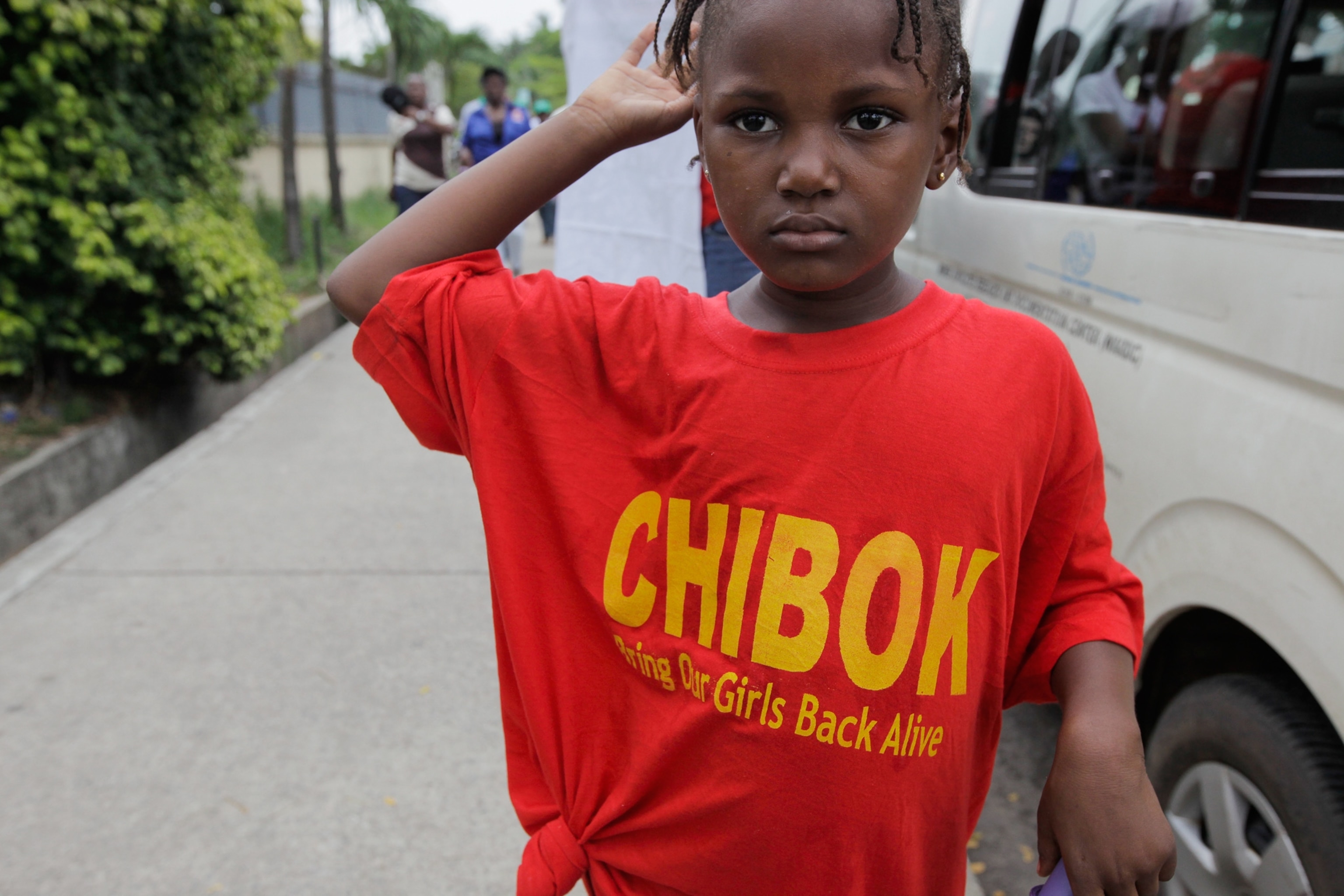
The official in Abuja with whom I watched CNN was very much aware of this suspicion. As a onetime militant, he may even have harbored it to some degree himself. He would gladly do away with the notion of justice, as he indicated, if only the state would show some modicum of competence. It wasn't just reverence for American law enforcement I heard in his voice; there was also a note of disdain for his own country, which, he knew only too well, could never carry off a manhunt as efficient as the one in Boston.
As I was leaving his office, he informed me that he'd heard that Barack Obama had candidly promised to kill the Boston Marathon bombers when they were caught. I assured him that Obama hadn't said this. He wasn't to be convinced. And he insisted, what's more, again in reverent tones, that was precisely the policy Obama should pursue. Find them, kill them. By the time I left Nigeria, I still disagreed with him, but I understood his frustration, and his adamance.
Here's my November 2013 magazine feature, "The War for Nigeria: A bloody insurgency tears at the fabric of Africa's most populous nation."
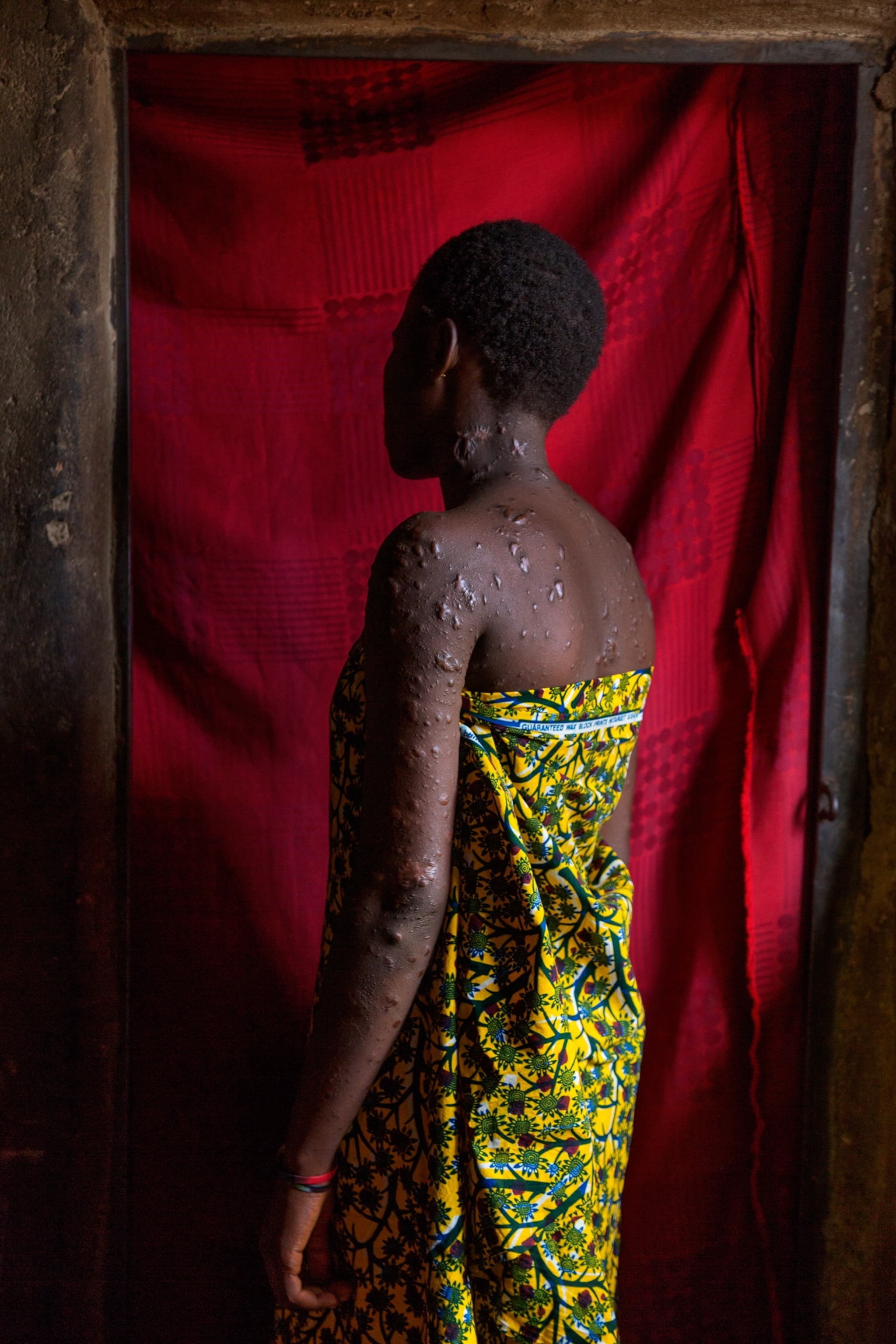
The ticket taker, who worked at Kano's bus station, had his back to the blast. Before he heard it, it knocked him to the ground, and flame licked his head. He lay facedown, dazed, his ears ringing, blood streaming from a shrapnel wound in his leg, but still he knew instinctively what had happened: There was a bomb in the car.
The driver of the Volkswagen had acted strangely. After pulling into the dirt lot of the station, he and the man in the passenger seat had been approached by touts—ticket salesmen who compete for fares—and had told them, "We don't know where we're going." But when the ticket taker went up to the car, the driver said, "We already bought tickets." Not thinking much of it, the ticket taker walked away.
And then—boom.
As his ears stopped ringing, the screaming grew louder. He got up, and through the thickening black smoke he saw people staggering away from the buses. Burning bodies hung from what had been their windows. Moments before, they had been sleek, new 60-seaters waiting to head to points south. Now they were a pyre, like some awful ancient ritual offering. On the ground around him the ticket taker saw the corpses and remains of passengers, of the touts, his colleagues, the women who sold boiled cassava and roasted fish from plastic tubs carried on their heads. Friends he saw every day were now "separate people parts," as he put it to me.
He looked down at his leg and saw that he too was on fire. Frantically, he pulled off his clothing. Then he made his way out of the lot, one in a crowd of unclothed people stumbling out of the clouds of black smoke billowing from the station. "I walked naked to the hospital," he said. He lost consciousness along the way. Someone, he doesn't know who, carried him on.
The ticket taker came to in a nearby hospital. Then he was transferred to Kano's National Orthopaedic Hospital, where, the following week, I met him. (The hospital's director would not allow me to ask his name.) His ward and two more were filled with victims of the bombing, and their wounds were eerily repetitive. For those lucky enough to have escaped the worst, faces were singed, and skin was missing from arms and waists, stripped off with burning clothing. Those not as lucky were no longer visibly African; the outer layer of flesh had been burned from their bodies, leaving them looking—as some joked to each other, when it wasn't too painful to move their mouths—like beke, the Igbo word for a white man. It was as though their identities had been taken.
One such man sat on his bed staring at the wall in an effort to withstand the pain, while nurses wrapped him in gauze. He turned and looked at me with an expression of such kindness that I smiled. I asked—the stupidity of my question apparent immediately—"Are you OK?"
"No," he said calmly, and returned to staring.
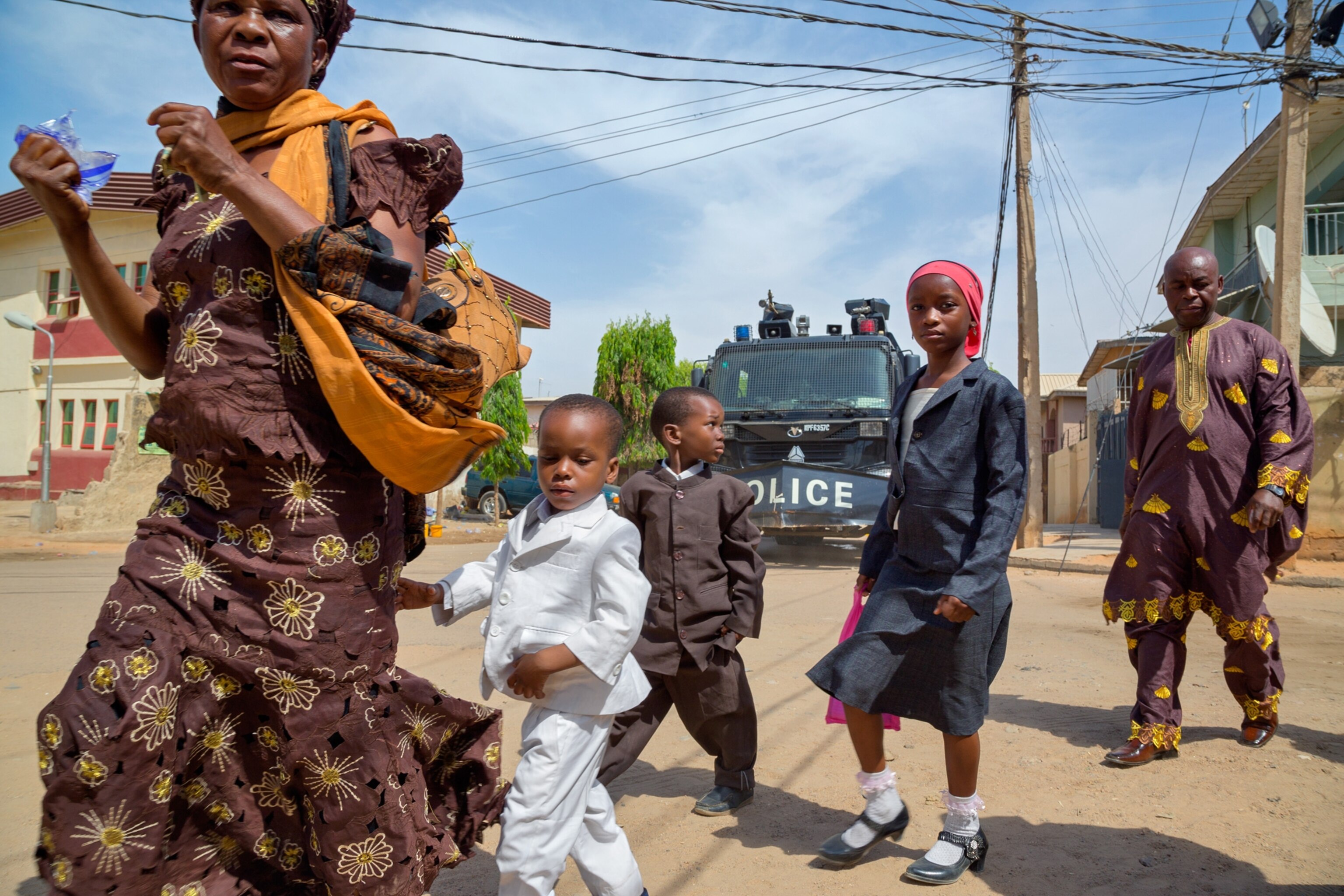
The Crisis
When the car exploded, the same two words occurred to him, and to the ticket taker, and to every other person who saw or heard the blast, which could be heard on the other side of Kano, Nigeria's second largest city: Boko Haram. That neither they, nor practically anyone else in Nigeria, knew what Boko Haram was exactly or why it would want to bomb a bus station was beside the point.
Officially, according to the Nigerian government, Boko Haram is a terrorist group. It began life as a separatist movement led by a northern Nigerian Muslim preacher, Mohammed Yusuf, who decried the country's misrule. "Boko Haram" is a combination of the Hausa language and Arabic, understood to mean that Western, or un-Islamic, learning is forbidden. In 2009, after Yusuf was killed—executed, it's all but certain, by Nigerian police—his followers vowed revenge.
The world is coming to the unwelcome realization that, 12 years after 9/11, violent Islamist extremism and the conflicts it ignites aren't going away. Accompanying that is the equally unwelcome realization that these conflicts afflict, more than ever, Africa, a continent still unequal to the challenges of the 20th century, never mind this one. In the Sahel, home to al Qaeda in the Islamic Maghreb and to the jihadists who until recently controlled northern Mali, Boko Haram has emerged as the nastiest of a nasty new breed. Calling for, among other things, an Islamic government, a war on Christians, and the death of Muslims it sees as traitors, the group has been connected with upwards of 4,700 deaths in Nigeria since 2009. And although Nigeria, with 170 million inhabitants, is the continent's most populous country (one in six Africans is Nigerian) and has sub-Saharan Africa's second largest economy, even by its immense standards the carnage attributed to Boko Haram is immense.
So much so that unofficially, in the national collective consciousness, Boko Haram has become something more than a terrorist group, more even than a movement. Its name has taken on an incantatory power. Fearing they will be heard and then killed by Boko Haram, Nigerians refuse to say the group's name aloud, referring instead to "the crisis" or "the insecurity." "People don't trust their neighbors anymore," a civil society activist in Kano told me. "Anybody can be Boko Haram." The president, Goodluck Jonathan, an evangelical Christian, wonders openly if the insurgency is a sign of the end times.
After the bus station bombing I twice traveled to Atakar, a hilly area in Kaduna state, where mass killings had been reported. Before the first visit I consulted officials. They hadn't gone to Atakar and wouldn't, because they believed Boko Haram was behind the killings. Everyone killed had been Christians, they assured me. "It's not unconnected with the quest for the Islamization of the north," one official said. "They want as much as possible to annihilate the Christians."
In the first village I visited, I met a family huddled by their roofless, charred homes. They were, in fact, Fulani Muslims, and they claimed they'd been attacked by marauders from the other side of Atakar—Christians, they presumed. Some of them said the attack had been ethnically motivated, others religiously. A young man told me that the original incitement had to do with a poisoned cow. "We were attacked because we are Fulani—and because of the cow that died," he said. He wasn't being facetious: Northern Nigeria has endured decades of ethno-religious slaughter, often enough touched off by peccadilloes. In 2002, after a journalist remarked that the Prophet Muhammad would have approved of a beauty contest, riots left hundreds dead.
Later I traveled to the other side of Atakar and found that villagers there, Christians from the indigenous Ataka tribe, had also been attacked. They'd assembled in a refugee camp in a schoolyard. One man told me that he was in his home when he heard gunfire. He went outside and saw men dressed in black shooting "powerful guns." He barely escaped with his life, he said. He was certain the attackers were Fulani, as was a neighbor who joined our conversation. When I asked the neighbor why, he said, "My people don't wear black." Both suspected the attackers were also Boko Haram, though why that group would want to assail this remote place they couldn't say.
"We want to believe it's Boko Haram," a local aid worker told me, in such a way as to denote that life had become so incomprehensibly frightful in northern Nigeria that wanting to believe Boko Haram was involved was enough to make it so. "We don't have any other information," he said, expanding on the thought, "so we want to believe it's Boko Haram."

God's Own Country
In his autobiography Ken Saro-Wiwa, the son of the Nigerian activist of the same name who was executed by the state on trumped-up charges in 1995, writes that "Nigeria should be God's own country in Africa." This could be dismissed as just more of Nigeria's famous nativist braggadocio if its neighbors and its despairing partners in the West didn't agree. That braggadocio—and a fierce ambition—are matched by the country's resources, among them gas, minerals, good harbors, and fecund soil that once helped propel the British Empire. Nigeria boasts an educated middle class, industrious cities, a rowdy, if not exactly free, press.
The most lucrative of its resources, however, since its discovery in the 1950s, is crude oil. Nigeria is the world's fifth largest exporter; yet nearly two-thirds of its citizens live in absolute poverty, meaning that they have just enough to not die. Oil has made government the best business venture in Nigeria, and because oil, and not taxes, accounts for most of the state's revenue, it also makes politicians unanswerable. A newspaper last year estimated that since President Jonathan entered office in 2010, $31 billion have disappeared. "There's been a failure of government at all levels historically in Nigeria," a Western diplomat working there told me.
This failure is everywhere apparent, but nowhere as much as in Kano, once one of the great cities of Africa and of the Muslim world. Islam arrived with merchants and clerics in the 11th century (giving it a much longer history there than Christianity); the Hausa king of Kano adopted it in 1370. In 1804 a caliphate was established. The British toppled it in 1903 but retained its pliant emirs. Kano, the heart of regional trade since antiquity, became an industrial and agricultural hub. So well was the arrangement working for him, the Emir of Kano opposed Nigeria's independence, gained in 1960. A half century later roughly half of Nigerians are Muslims, the vast majority living in the north.
The emir and the British kept out Western education and other advances but allowed in Christians from the south. Kano's fortunes began to slide in the 1970s, and as they did, its lack of development—and the lack of oil in the north—grew more apparent. Current statistics are unnerving: More than half of children under five in northern Nigeria are stunted from malnutrition. In the northeast, where Boko Haram started, only a quarter of homes have access to electricity, which would be a bigger problem if more than 23 percent of women could read. In the 1980s, 1990s, and again in the early 2000s ethno-religious conflicts killed thousands. Then Boko Haram came in.
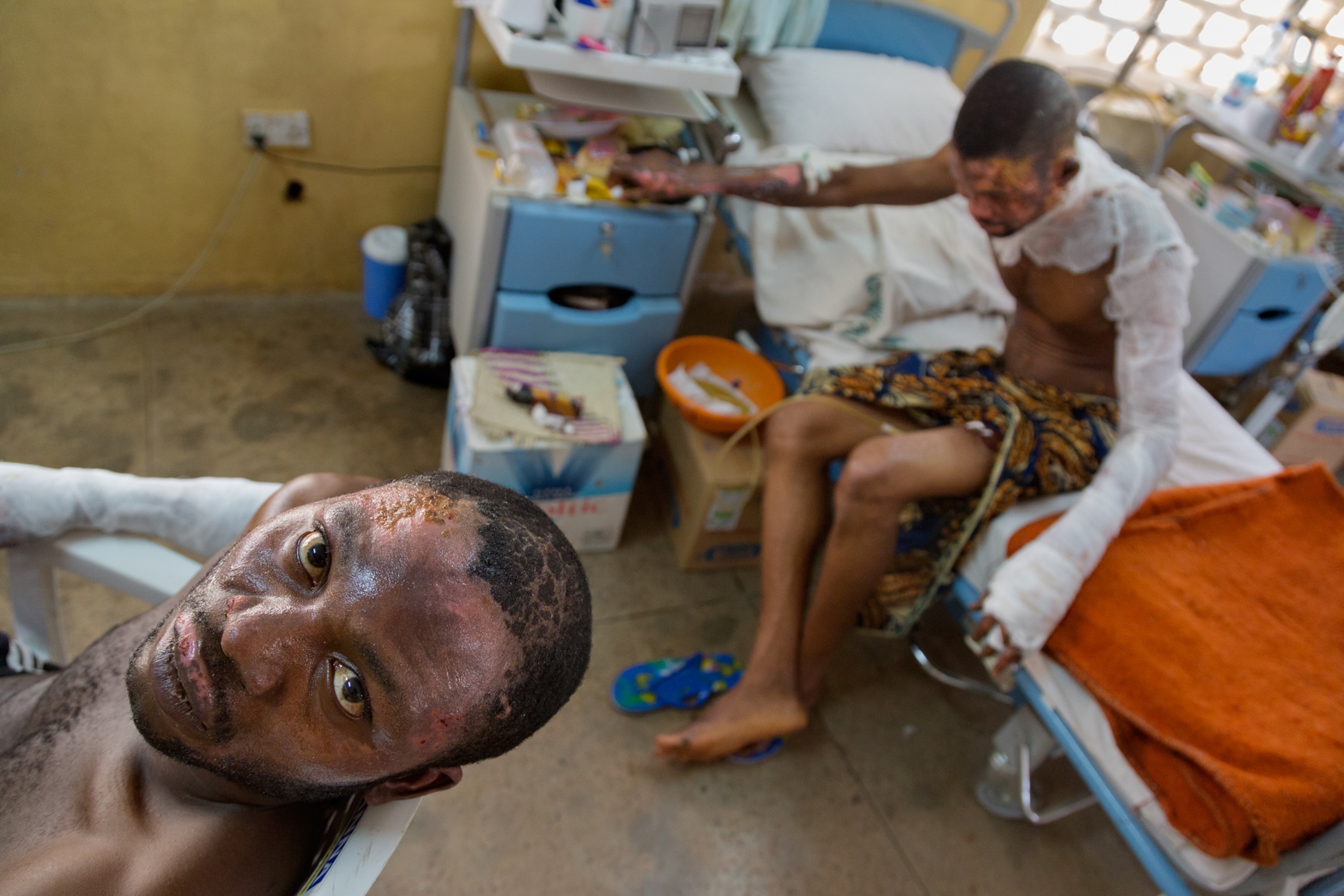
Today Kano feels like a weary garrison. Approaching it, you come to checkpoints every few hundred yards. Between them you pass farms left fallow by neglect and desertification and through the half-alive villages they used to support. In the city, urban desertification: streets, parks, plazas empty. Signs are gone from any place deemed vulnerable to attack, which, since the bus station bombing, is any place. At police headquarters the only notice, spray-painted on an exterior wall, instructs, "Do Not Urinate Here."
The most visible figures of authority in the city, the only visible figures of authority, are the Joint Task Force units (JTFs)—paramilitary teams made up of police, soldiers, and agents from the State Security Service, Nigeria's equivalent of the FBI, who patrol in reptilian armored vehicles and canopied pickups. They're known for their brutality and venality and have become as feared as the insurgents in some quarters, particularly in poor Muslim districts.
The real power in Kano is hidden, conspicuously. Behind tall walls in the city center is the state government's sprawling seat. In his office there, the governor, Rabiu Kwankwaso, greeted me from an archipelago of leather sofas. On one wall was a life-size painting of Kwankwaso; against another, a life-size stand-up cardboard cutout of him. In both he was wearing exactly what he had on when I met him: a white babbanriga robe and red brimless cap, emblems of his Kano revitalization campaign, which he calls the Red Cap Revolution.
"I have no doubt in my mind that one day Nigeria will overcome it," Kwankwaso told me, referring to Boko Haram. "How it will happen, it is difficult to say now." A trio of aides nodded. "This is the time to listen even to foolish people, to hear what they are saying, because we don't have answers." Kano hasn't upgraded its power grid in years, and as he talked, the lights went out. They came back on, and he continued. "You have to prevent violence. On the other hand, government has to do so many other things. What we are seeing is just a symptom of what has happened in the past." After Kwankwaso's first term in the governor's office ended in 2003, he was indicted for embezzling $7.5 million in state funds. He was not prosecuted and in 2011 was elected again.
In Kano's old walled city is the emir's palace. Amid the poverty of his subjects, the emir, now 83, still lives very much like an emir. I wasn't granted an audience with him, but one morning I was invited to look around the palace, a rumpus of alcoves and anterooms. I arrived alongside a busload of Gulf-state visitors filing in with gifts in duty-free bags. After convening with them, the emir emerged in a meringue of robes, mounted a horse, attendants shielding him with a giant, tasseled umbrella, and rode to his mosque. It used to be that anyone could come and watch these rituals. That ended in January, when men drove up alongside the emir's Rolls-Royce, pulled out guns, and opened fire. Two of his sons were shot, several of his entourage killed.
The assurance of violence hangs in the air. While I was in Kano, there were near-daily reports of shootings and a series of botched bombings, including one at the palace. On Sunday mornings police park water-cannon trucks outside churches, and preachers inside talk about the "Lord's battle" against Boko Haram; in nearby mosques clerics condemn Goodluck Jonathan's "war on Islam." On Easter a TV reporter friend of mine got a call. JTFs had raided a suspected Boko Haram hideout. He returned a few hours later with familiar footage: an orderly array of guns, bullets, and homemade bombs, and near it an orderly array of bodies of slain "militants." Among the dead on this day I could see at least one woman and a child. The position of the bodies suggested that the people had either been piled together after being shot or were killed en masse.
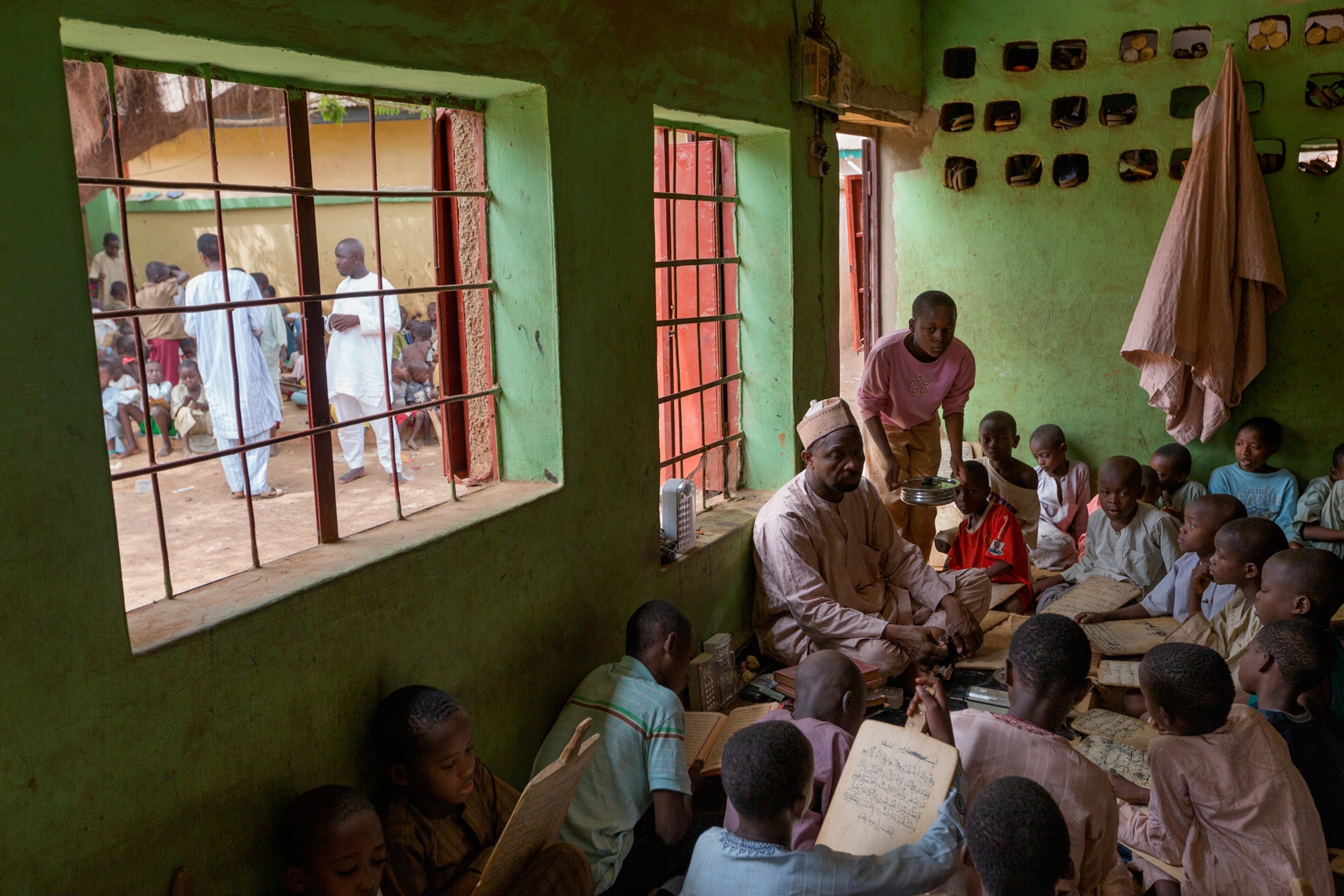
State Within a State
There are various creation stories for Boko Haram. The most common I heard in Nigeria is this: In the early 2000s in the northeastern city of Maiduguri, Mohammed Ali, a preacher fed up with poverty and disorder, embarked on a hegira, a Muhammadan withdrawal from society. He and his followers created a commune and practiced sharia. After a dispute with authorities, the Nigerian Taliban, as they'd become known, attacked a police station. The army laid siege, and Ali was killed.
Survivors regrouped around a promising contemporary of Ali's, Mohammed Yusuf. Yusuf built a bigger commune, described in a report as a "state within a state, with a cabinet, its own religious police, and a large farm." He called his group Jamaa Ahl al Sunna li al Dawa wa al Jihad, or People Committed to the Propagation of the Prophet's Teachings and Jihad. Possibly deriding Yusuf 's religiosity, someone called it Boko Haram. Yusuf was carrying out forced conversions to Islam, according to reports, and likely ordered the murder of a rival. Nonetheless he gained sympathizers around Nigeria, not all of them Muslim. "Boko Haram is a resistance movement against misrule rather than a purely Islamic group," one bishop said. Yusuf, a Maiduguri reporter told me, "was so charismatic. He could talk to people very gently, very simply," but "when he preached, he acted. Overacted."
In 2009 Yusuf's followers clashed with security forces. The army shelled the commune. Yusuf had predicted that if he was ever arrested, he would be killed without trial, and that's exactly what happened. Surviving devotees went into hiding. Some traveled abroad for training with other militants, and some regrouped in Kano around Abubakar Shekau, Yusuf 's deputy. They set out to "liberate ourselves and our religion from the hands of infidels and the Nigerian government." Northern Nigeria was overtaken by bombings, arsons, and shootings—at police stations and government offices, then at churches, mosques, schools, and universities—and by assassinations of officials, politicians, clerics, and others. The federal police headquarters in Abuja was suicide-bombed, then the UN compound. A residence of the vice president's was shot up.
A deadly attack hit Kano on January 20, 2012. Waves of gunmen set upon police stations and State Security Service offices. The official estimate of the dead was 185, but according to Kano residents I spoke with, the real number was much larger. I was also told that some people risked their lives to gather outside police stations to cheer on the attackers, so despised are the authorities in Kano.
Strange Effects
The resentment that impelled those residents is summed up in a favorite saying of Ken Saro-Wiwa's, which his son likes to quote: "To live a day in Nigeria is to die many times." The smallest tasks in Nigeria sap one's dignity. En route to Kano, I flew through the Lagos airport, where the guard at the bag scanner shook me down for a bribe in front of his expressionless superiors. I refused. He negotiated: "Money for water?" I told him that if he really was thirsty, he could meet me in the snack bar. A half hour later he arrived, uniform gone, now in natty denim, two mobile phones in hand, and leaped into a chair with a "Here you are!" We talked for an hour. I ended up buying him water and lunch. He in turn called a friend who picked me up at the Abuja airport. "Anything you need," the guard said as we parted, and he meant it.
Such is the polyphony of interaction in Nigeria—"affectionate extortion," I heard it called. In a country that's endured a civil war, six military coups, two assassinations of heads of state, and at least three crippling domestic insurgencies in just over 50 years of existence, and where contempt for leadership has hardened into a perverse kind of civic responsibility, this mixture of menace and generosity, officiousness and humor—the attitude that allows a man whose skin has been burned off to joke that he's been turned white—is indicative of a certain flippancy, part of that Nigerian braggadocio. It's also a way of keeping sane. And to that end it orders Nigerians' complex perspective on sedition. They condemn Boko Haram and see its hypocrisy. As one soldier, a Muslim, said to me while guarding a church on Palm Sunday, "They say Western education is wrong. But that book you're reading, how was it made? That pen you're using, how was it made? That gun you have, where was it made?" But they pay Boko Haram a grudging deference too. They know well the frustration that would drive someone to take up arms against the state.
This deference takes subtle forms. On Kano street corners vendors sell DVDs of insurgent attacks downloaded from the Internet. Saying Boko Haram aloud is discouraged, but you can refer to the Boko Boys, or BH, as though it were some hot rap act.
The extent of the insurgency's strange effects on the Nigerian psyche became apparent as I looked into the bombing at the bus station. Unlike Boko Haram's signature attacks, this one was indiscriminate, meant to kill as many as possible, whoever they were. But theories about its meaning vary. Kano is majority Hausa and Fulani, but Sabon Gari, the district where the station is located, is home to many Igbo. They tend to be Christian, and they operate the bus lines. So the most widespread theory is that the bombing was an attack on Igbo Christians. "To me it's an extension of killing Christians in their churches," a security officer in Abuja told me. A traditional Igbo leader in Sabon Gari who goes by Chief Tobias said, "Igbos were the target."
But this theory goes only so far. The bus operators are Igbo, yes, as were many of the passengers and station workers who died. But many others were not. Some were Hausa or Fulani, some, possibly, Kanuri, the majority ethnicity of Boko Haram's originators. Sabon Gari is home to most of Kano's churches, but it also has many mosques. It is the most diverse part of Kano, a throwback to the city's old cosmopolitanism, and on a given day any number of the 250 or so ethnic groups that make up Nigeria might be represented there.
A prominent former Kano parliamentarian, Junaid Muhammad, a Muslim, told me that Chief Tobias's claim was ridiculous. "You cannot tell your bullet or your bomb, 'Go and hit an Igbo man' or 'Go and hit a Hausa man.'" I went to see Boniface Ibekwe, the supreme leader of the Igbo in Kano and a Christian, and was surprised to find he agreed. "It's not a direct attack on Igbos," he said. "Boko Haram's objective is to get where people are gathered together and destroy it."
Some people believe the bus station was bombed because it is a center of commerce. It represents the influx of foreign goods, foreign ideas, impious ideas. Others wonder if the bombing was meant to protest the economic dominance of the south over the north. Perhaps what Boko Haram really wants, one theory holds, is regional equity or a new northern nation. Among northern politicians, secession is an oft talked about, if impracticable, idea.
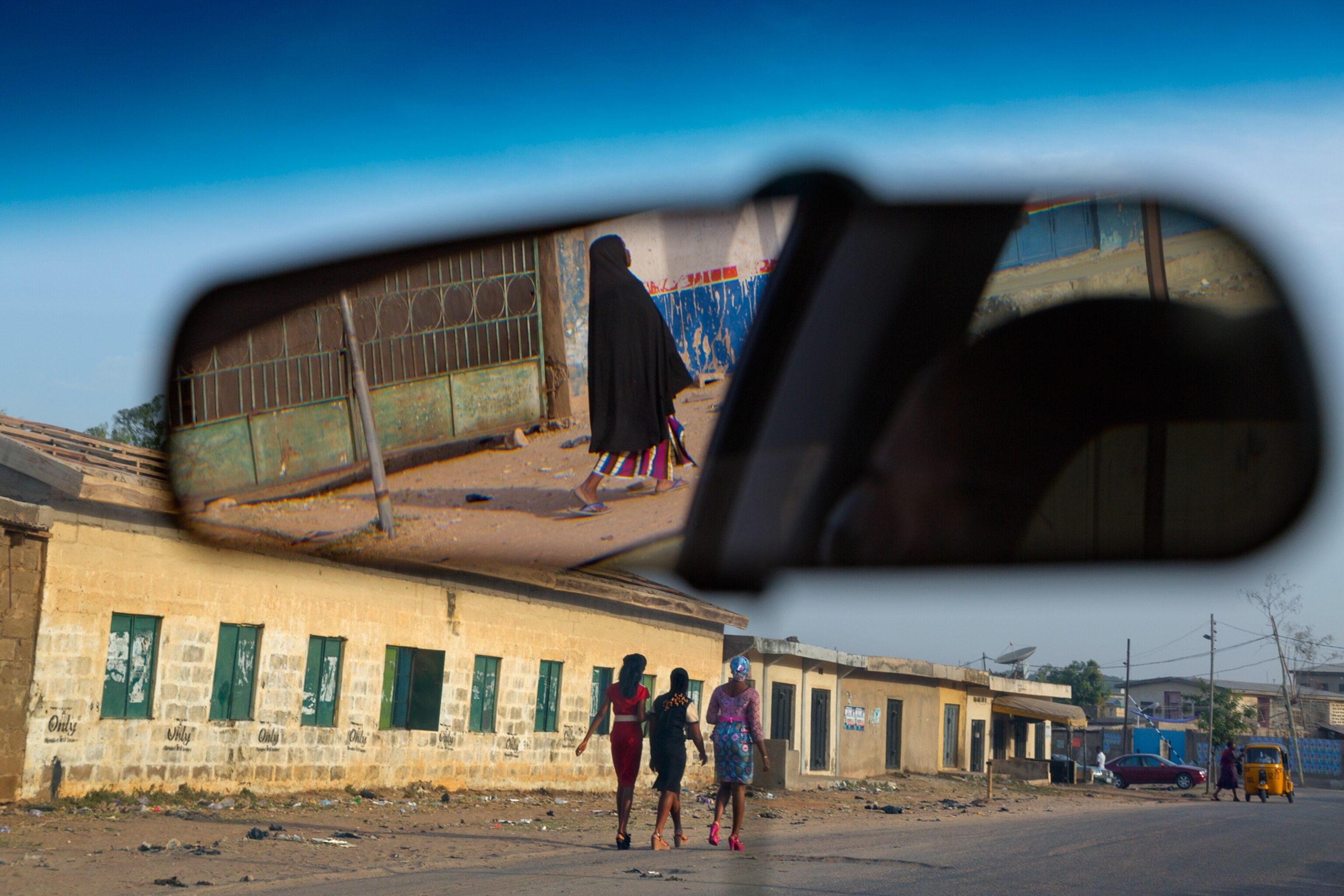
An Existential Threat
One thing everyone seems to agree on is that when the authorities got involved, the confusion increased. Take what ought to be the most basic fact: how many died. I spoke to one reporter who put the total around 30; another said around 40. Chief Tobias said 75. The real number will never be known, because no official account of the incident has been given. The government's tally—22 dead—is a fiction.
The government won't say who it suspects the bombers were, aside from Boko Haram; how the car bomb was made; or even whether there was only one bomb. Some witnesses claim there were two. Most people agree the car was a Volkswagen, but some—including the ticket taker—say it was an Opel. Some witnesses claim there were two people in the car, others three. According to local journalists, security forces removed corpses from the station as quickly as possible and moved survivors from one hospital to another in an effort to keep reporters away from them. The authorities "don't want the public to know what is actually happening," Nasir Zango, a Kano reporter, said.
Why? There are varying theories about that too. To head off reprisal attacks. To protect their jobs. Because they deceive a lot. The most common explanation offered to me, and the most troubling, is that security forces didn't properly investigate the bombing because they can't. They don't have the training or the experience, not to mention the interest. They don't have the equipment to analyze bomb fragments or the intelligence networks to lead them to the bombers. Often police don't even bother taking statements from witnesses after attacks, I was told.
Still, the government and the press are equally quick to pin any violence in the north on Boko Haram. For the former, it distracts from mendacity and ineptitude. For the latter, it provides copy. Privately many people agree that criminals have found in Boko Haram a perfect cover. The result of all this no longer stops at confusion. "You begin to think it's as though someone's hellbent on seeing these problems continue," Lawan Adamu, another Kano reporter, said. "The conflict, the crisis, is taking a very big dimension that is really making many of us start thinking or believing that there is a conspiracy. Many people have said this before, and I didn't want to believe, but now I'm starting to."
Ken Saro-Wiwa the younger, who now is (in a perfect Nigerian irony) an adviser to President Jonathan, told me that Boko Haram is "typically Nigerian, in that it started as an ideological movement. Then it was co-opted by political opportunists. Then it was mixed with economic issues. And now it's muddied, so that you can't tell what it's about."
When I asked a local community leader in Atakar why no state officials had come to the attacked villages there, he said, "Why would they come? They are the sponsors of these things." And was Boko Haram involved? "Why not?" he said. "What is the difference?"
It was a sentiment I heard again and again. Almost no Nigerian I spoke with believes Boko Haram is just Boko Haram. Some claim it's the creation of Wahhabis from the Gulf states; others, of "the West." Still others believe Boko Haram is backed by northern politicians vying for power; or by southern politicians who want to destabilize the north; or by people in President Jonathan's party who want to unseat him; or by Jonathan himself, in an effort to cancel elections in the north; or, if not by him, by the people around him. In fact, Jonathan apparently believes the last. In a moment of unbuttoned paranoia at a church service last year he said, "Some [Boko Haram] are in the executive arm of government, some of them are in the parliamentary/legislative arm of government, while some of them are even in the judiciary. Some are also in the armed forces, the police, and other security agencies."
And some Nigerians say that Boko Haram doesn't exist at all. "We believe Boko Haram is a political expression," Chief Tobias said. "We don't believe there is an organization Boko Haram."
As I continued reporting, it became apparent that the insurgency's gravest toll on Nigeria isn't physical. It's existential. Boko Haram has become a kind of national synonym for fear, a repository for Nigerians' worst anxieties about their society and where it's headed. Those anxieties touch on the most elemental aspects of Nigerian life—ethnicity, religion, regional inequities, the legacy of colonialism—and not least is the anxiety that Nigerian leaders are wholly incapable of facing this insurgency, indeed unwilling to face it, much less the social fissures beneath it. Or worse, that the leaders are no better than the insurgents. That the state is Boko Haram.
They Could Be Anywhere
It's not an entirely unreasonable supposition. Of the more than 4,700 killings associated with Boko Haram to date, almost half have been at the hands of security forces, according to Human Rights Watch. Many of those killed have been civilians who were just in the wrong place at the wrong time. As the insurgency gets more vicious, so does the government. In July suspected Boko Haram militants set fire to a boarding school in Mamudo, killing 42 students and teachers. In April the military assaulted the village of Baga, claiming militants were hiding there. At least 200 were killed. Witnesses described soldiers gunning down people as they ran from their homes.
I interviewed people in Kano who claimed they'd been harassed, beaten, or shot by security forces. In my last days in Nigeria I went to Abuja, where I recounted their stories to a general, one of the main architects of the campaign against Boko Haram. He wasn't moved. In fact he wouldn't concede that there had been any abuses. When I pressed the point, he began yelling and pounding his desk. He said such stories were invented by journalists sympathetic to Boko Haram, including, he intimated, me. "We know there are some journalists deliberately siding with Boko Haram in this war!" said the general, who did not want to be named. "I have found some journalists, and they confessed to me they were deliberately siding with certain sides. Deliberately! Some based in Western countries."
Calming down, he went on, "Look, it's a shadowy war we are fighting." To prove how shadowy, he showed me a video found in a raid. It showed Abubakar Shekau. Bushy-bearded, muscular, with a bit of a gut and a limp, the Boko Haram leader is training three young men to wield an AK-47. They're in the closed courtyard of a residential building somewhere, maybe Kano. Children can be heard playing inside. Suddenly there's a knock at the gate. Shekau lurches to a wall, as one young man lifts the rifle unsteadily, ready to fire. A man comes in, carrying a shopping bag. They know him. Everyone laughs with relief.
"You see, they could be anywhere, anywhere!"the general said. "Not only in the north—in the whole of the country! [Nigerians] still don't understand the challenge—the real challenge—we're facing, the seriousness of the situation. They don't understand."
As he said this, I thought back to the hospital in Kano and to a woman I met there. She'd been selling water in the bus station the day of the bombing. Her young daughter had been helping her. When the car exploded, the girl vanished. In the darkness the woman called out for her. When her daughter didn't respond, she began looking for a body. When she couldn't find a body, she looked for an arm, a leg, clothing, a shoe, anything. She found nothing. She told the police what had happened, but they didn't care and ordered her to leave. The woman's husband went to every hospital in Kano, to no avail.
"I never saw my daughter since that day," she said. Dominant in her cracking voice as she said this were grief and confusion. But when she spoke of the police, another note took over. It was anger.

